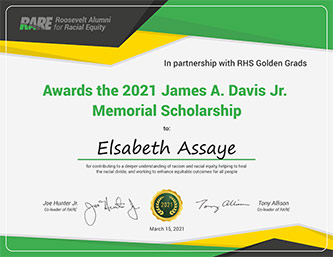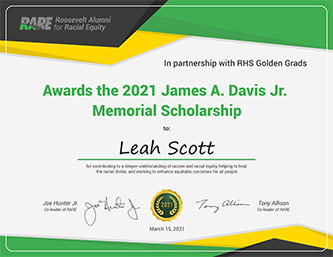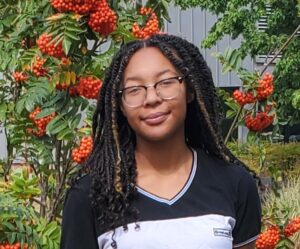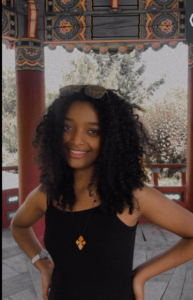RARE Awards First Scholarships

 Roosevelt Alumni for Racial Equity (RARE), a group that formed just last summer, has awarded its first two scholarships to students who will graduate from Roosevelt this June.
Roosevelt Alumni for Racial Equity (RARE), a group that formed just last summer, has awarded its first two scholarships to students who will graduate from Roosevelt this June.
Leah Scott and Elsabeth Assaye each will receive a $5,000 James A. Davis Jr. Memorial Scholarship award to attend college or trade school. Both young women, seniors at Seattle’s Roosevelt High School, are also currently taking college courses through the Running Start program. Running Start allows students begin college courses while still in high school. As a result of the program, they expect to enter college as sophomores.
The scholarships honor the memory of James A. Davis Jr., a member of Roosevelt’s class of 1971 who died in 2013. RARE was formed by Davis’s classmates who wanted to improve racial equity at RHS in the wake of George Floyd’s murder and the racial upheaval that followed. The students selected have contributed to promoting racial equity at the school and displayed a strong commitment to educational goals.

Leah Scott, 2021 scholarship award winner
Scott plans to attend North Seattle College to complete her transfer credits for either the University of Washington or Eastern Washington University. Then she plans to major in political science and economics and has her sights set on earning a doctorate. She led the school’s Martin Luther King Jr. Day assembly and is careful to say that Roosevelt has diversity of thought among its students more than an ethnically diverse student body.
“As an activist, this scholarship will validate my work,” she said of the award.
She has held several leadership roles outside of Roosevelt, including Co-President of the Washington NAACP Youth Council, Washington Ethnic Studies Now Student Advisory Board member, and North Seattle College Student Body President.
During her first years at Roosevelt, she devoted herself to helping other students, which caused her grade point average to suffer. Before her senior year she decided that her education was important to her continued ability to help others.
“I became humble,” she said, “and I worked harder.”

Elsabeth Assaye, 2021 scholarship award winner
Assaye didn’t speak English when she started at Roosevelt High School. Her first language is Amharic, Ethiopia’s official language. She and her family moved to the United States seven years ago. She will be the first person in her family to attend college.
She mentors other students of color and she hopes that Roosevelt will attract more students, faculty and staff of color. She is also involved in a variety of clubs at RHS. She started Women in Tech Roosevelt High School and Black Girls Code because she wanted others to have the opportunity to develop their technology skills, explore different fields in the STEM field, and participate in workshops. She served as a Vice President for the BSU and as an advocate for black student issues at Roosevelt. She helped the president of BSU by planning events at school assemblies such as the Martin Luther King Jr. Day assembly, the Black history month assembly and more, including workshops and discussion groups.
Outside of school, she has been active in community clean-ups of her Lake City neighborhood.
Assaye plans to attend the New York Institute of Technology and hopes to become a software developer. She looks forward to becoming involved in the college’s black student union.
RARE members include black alumni who participated in the city’s Voluntary Racial Transfer program and were bused to the school, and white alumni who lived in Roosevelt’s catchment area. While many had been out of touch with each other over the fifty years since graduating, they have renewed their relationships through working for RARE’s goals and participating in its discussion sessions on racial issues.
RARE members expected to award the first scholarships in 2022 but were able to raise enough money quickly to grant awards this year. The group is also raising money to fund a documentary film, Roosevelt High School in Black and White, which will reflect on Seattle’s Voluntary Racial Transfer program and its successor, Mandatory Busing, which sought to desegregate the city’s schools. The program was abandoned in the 1990s. The film will also reflect on issues of race today, drawing parallels and comparisons with earlier eras.
